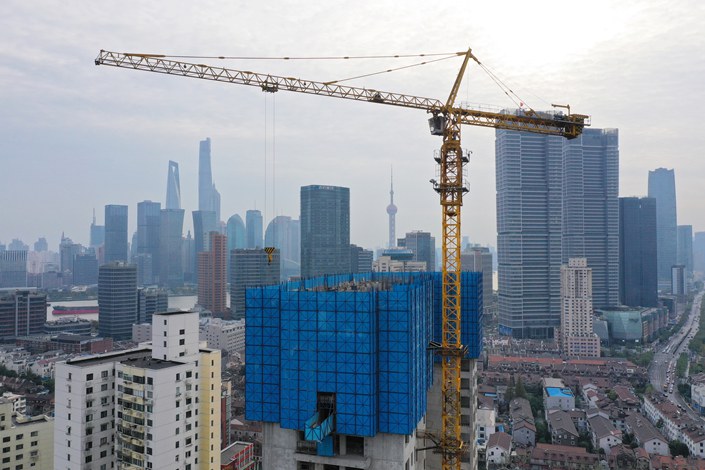
As Shanghai gradually opens back up after two months of strict lockdown, China’s financial hub has rolled out dozens of policies it hopes will help bring its economy back to life.
The municipal government is aiming, in particular, to prop up the property market — which was already suffering from a nationwide liquidity crisis before the outbreak began — as well as to support smaller enterprises and consumer demand.
In a policy document (link in Chinese), the city says that it will approve new housing projects and allow developers to delay the payment of land use fees to the authorities. It also pledges preferential policies to help people buying their first or second home, without giving specifics.
In April, Shanghai’s housing sales by floor space plunged 85.7% from a year earlier and 80.3% from the previous month, according to a report from property think tank Tospur Real Estate Consulting Co. Ltd.
Small businesses and self-employed people who rent space from state-owned entities will be offered six rent-free months, the government said, adding that it encouraged private property owners to follow suit. The government will offer up to 3 million yuan ($450,600) to property owners who waive rent.
An equivalent subsidy will be offered to companies in certain hard-hit industries, such as catering and tourism, for keeping on staff.
Many small businesses have struggled to pay their workers and rents during the lockdown, as strict stay-at-home orders for much of the city’s population meant many sectors saw basically no revenue over the period. A wave of business closures is likely in the near future, some business owners told Caixin.
The city’s industrial production plunged 61.6% year-on-year in April and retail sales fell 48.3%.
Like some other local governments, Shanghai also plans to subsidize consumer spending on durable goods such as cars and appliances. Individual customers will receive up to 10,000 yuan each if they buy an electric car this year and sell or scrap their old cars, according to the statement.
Banks are urged to delay loan repayment until the end of 2022 for small businesses, self-employed people, truck drivers and homebuyers whose income has been affected by the lockdown.
Lenders should also extend cheap loans to small and midsize companies and those who were hit hard by the lockdown.
Loans denominated in yuan slumped by 56.5 billion yuan in April, according to the local branch of the People’s Bank of China. That’s compared with a 337.3 billion yuan expansion in the first quarter.
The document also says that the government will help foreign firms tackle challenges in logistics, production, and cross-border travel. The authorities will facilitate entry and exit procedures for their employees and their families, as well as for global executives, the statement said.
Bao Zhiming, Zhu Liangtao and Peng Leyi contributed to this report.
Contact reporter Guo Yingzhe (yingzheguo@caixin.com) and editor Joshua Dummer (joshuadummer@caixin.com)
Get our weekly free Must-Read newsletter.







